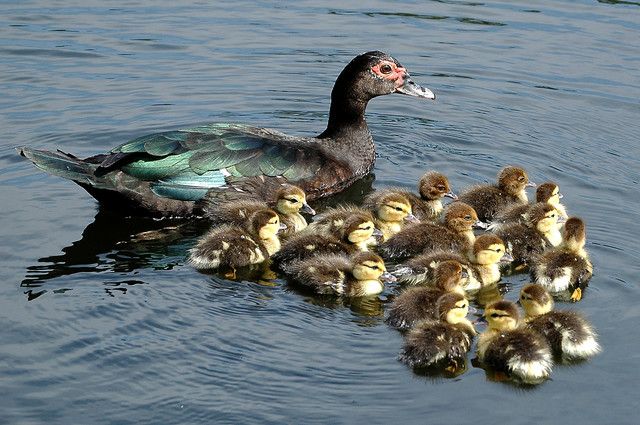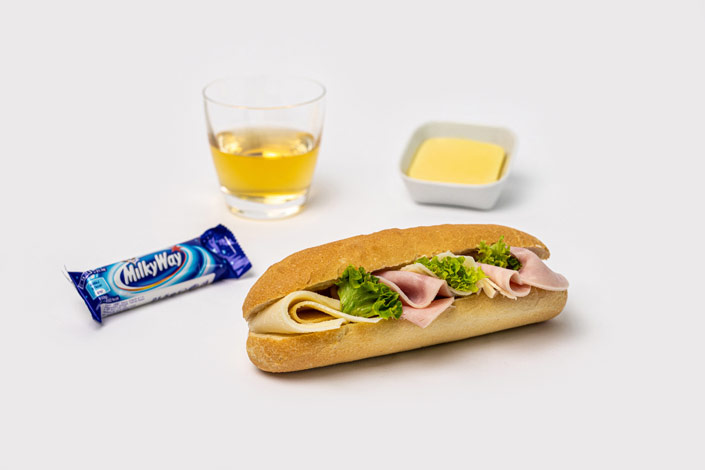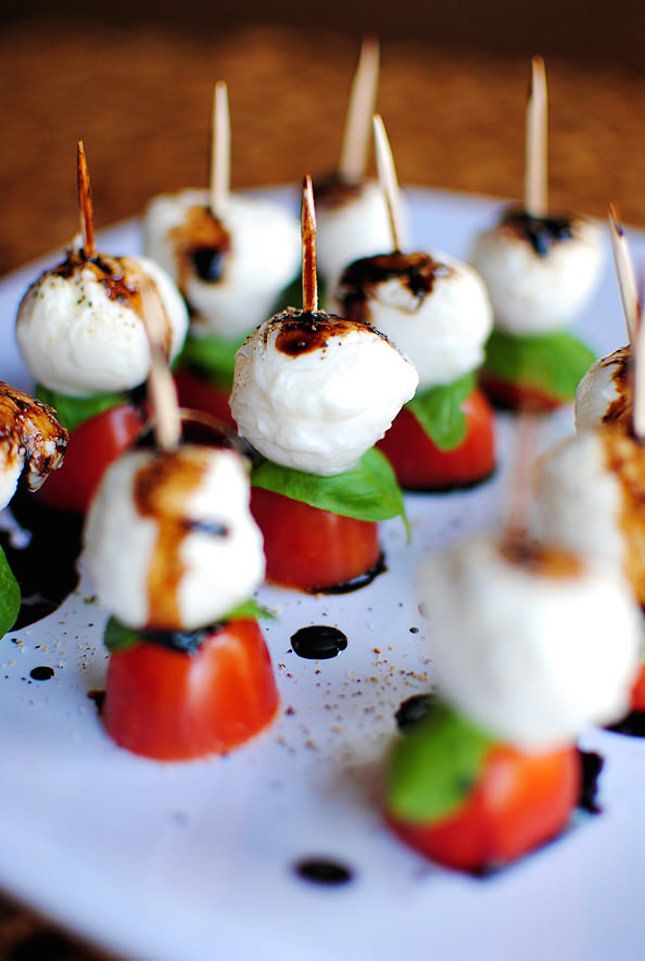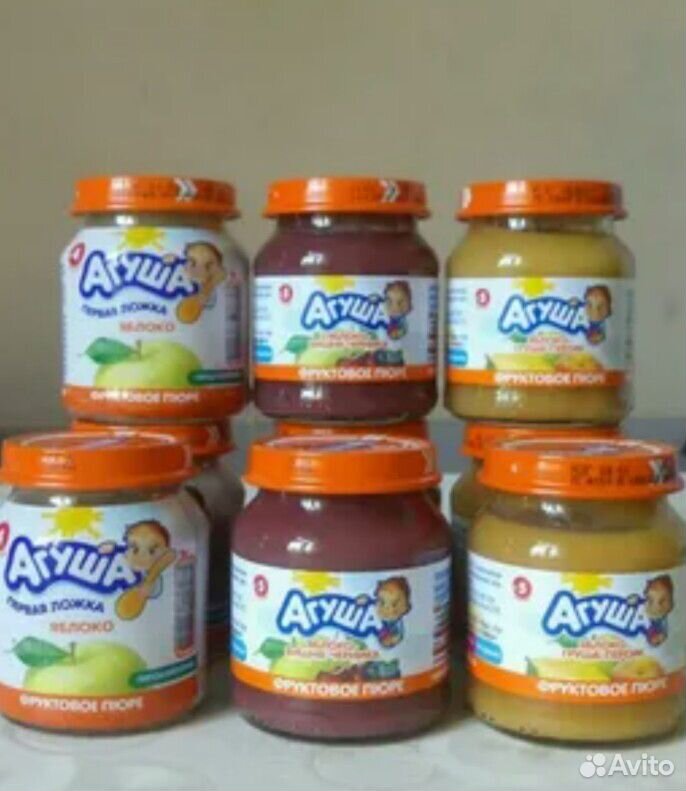What to feed baby muscovy ducks
How to properly care for baby Muscovy ducklings
Muscovy ducklings are great fun to raise and invaluable around the barnyard. They eat a massive number of mosquitoes and flies and are one of the most beneficial breeds of ducks you can own. Make sure your baby Muscovies grow up right by following a few simple tips.
Fortunately, Muscovy ducklings are easy to raise, as long as you know what you’re doing! They are generally hardy and lively right from the start, but raising them can present a few specific challenges to watch out for.
Muscovies are a perching duck
This means even newborn babies come equipped with tiny, needle-sharp claws. You should be aware of these when handling the babies for safety’s sake, but also be aware they can climb shockingly well if highly motivated! For this reason it’s best not to keep them in a brooder that is too shallow.
They have hunting instincts and will hunt bugs right from the start
If you brood them outdoors, this is great since they will start eating flies and mosquitoes and supplement their feed naturally. If they’re indoors, you don’t need to worry about them losing their interest in hunting. It is innate and they’ll start chasing bugs as soon as they’re outdoors.
However, it is fun to roll tiny treats such as peas or even bits of chick starter across the ground and watch them give chase!
Baby Muscovies are not water repellent and at high risk for drowning
All baby ducklings are vulnerable without the oils a mother duck secretes from her feathers, but since Muscovies are not very water repellent even as adults, their babies are exceptionally vulnerable. I nearly lost a Muscovy duckling because it got in a shallow water tub for a while and couldn’t get out. It was soaked to the bone and in a state of shock, but fortunately recovered. Make sure any water pans are extremely shallow until your ducks start feathering out.
As a general rule, once your ducklings have feathers on their bellies, they are ready to start swimming–just make sure they can easily get out of the tub.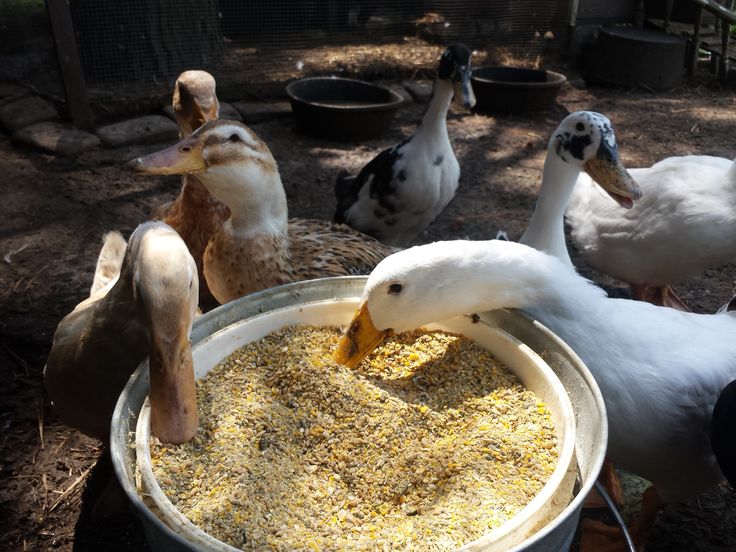
Muscovies thrive on greens
While chick starter should be available at all times, I also offer them peas, finely chopped greens such as lettuce or spinach, and grass clumps to climb on. It’s easy to use a garden tool to hack out a small section of sod with the grass still attached–the baby Muscovies go wild for it, nibbling on the grass and eating tiny bugs in the soil. And, peas are important for ducklings to eat since they are a natural source of niacin, which all ducks need to grow strong legs.
Muscovies need to be raised with their own kind
While it’s possible to raise Muscovy ducklings with Mallard-derived ducklings, there’s no question that they prefer to be with their own breed. The reason for this is their behavior and vocalizations are incredibly different from “normal” ducks. My adult Muscovies live with and tolerate the other breeds of ducks, but they would rather roost together and chatter to each other than socialize with the other breeds.
For your baby Muscovies’ own healthy development, it is strongly recommended to never raise a lone Muscovy. Having at least two is important, but a group is even better! (Ducks feel more secure in greater numbers.)
As cute as they are, it’s best to avoid over-handling
Muscovies are a very calm breed and often wind up quite literally underfoot, staring up at you in the hopes of getting a treat. This is a very cute and endearing quality, but there needs to be a clear line between humans and ducks. If the ducklings bond too closely to you, or imprint on you, they will think you’re a duck–which means they may become very aggressive as adults. This is especially true for males, and you definitely don’t want a huge male Muscovy with his powerful wings and hooked claws thinking he can attack you!
I talk to my Muscovy ducklings and give them treats to teach them my presence is a good thing, but I make it a point to mostly leave them alone. They will be friendly enough when grown without risking making them aggressive towards humans.
Enjoy your baby Muscovies!
Raising Muscovy Ducks - Lady Lee's Home
This post may contain affiliate links, view our disclosure policy for details.
Please share this content if you like it. Thank You!
1778 shares
Raising Muscovy ducks is very easy. They are easy to care for, friendly and a great dual-purpose duck to have on the homestead. In this post, you’ll find all the information that you need about raising Muscovy ducks.
I’ve been raising Muscovy ducks for a few years now and I can tell you, hands down, it’s the easiest animal I have ever taken care of. Or in other words… They pretty much take care of themselves.
I started my Muscovy duck journey with two females (hens) and one male (drake) that my ex-husband picked up from friends and this trio multiplied very quickly and became a great source of food for us.
But there is so much more to Muscovy ducks than just food production! We are going to go over all the benefits of raising them and all the questions that you might have.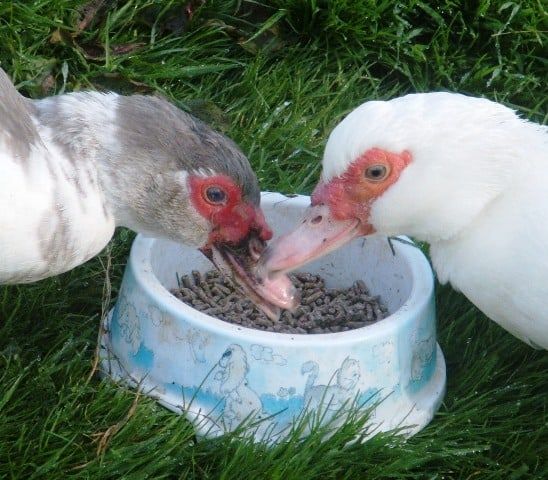 Let’s jump in!
Let’s jump in!
I am going to try to answer all the questions that you might have about Muscovy ducks. I hope that if you are considering this amazing breed of ducks this post will give you all the info that you need to make a decision.
If at the end of this post you have additional questions, feel free to post them in the comments.
Origin of Muscovy Ducks…
Muscovy ducks are native to South America and you can still find them roaming around wild in the jungles there.
Their original name was Musco ducks because they eat so many mosquitoes. The Russian Muscovites were the first to import them into their country and raise them domestically; this is where the name Muscovy came from.
They are the only duck that is not derived from the mallard duck. In fact, they are not considered a duck. They are a large waterfowl, something between a goose and a duck.
What do Muscovy Ducks Look Like?
an adult muscovy drake (male)One of the most known characteristics of Muscovy ducks is their large red, warty caruncles on their head.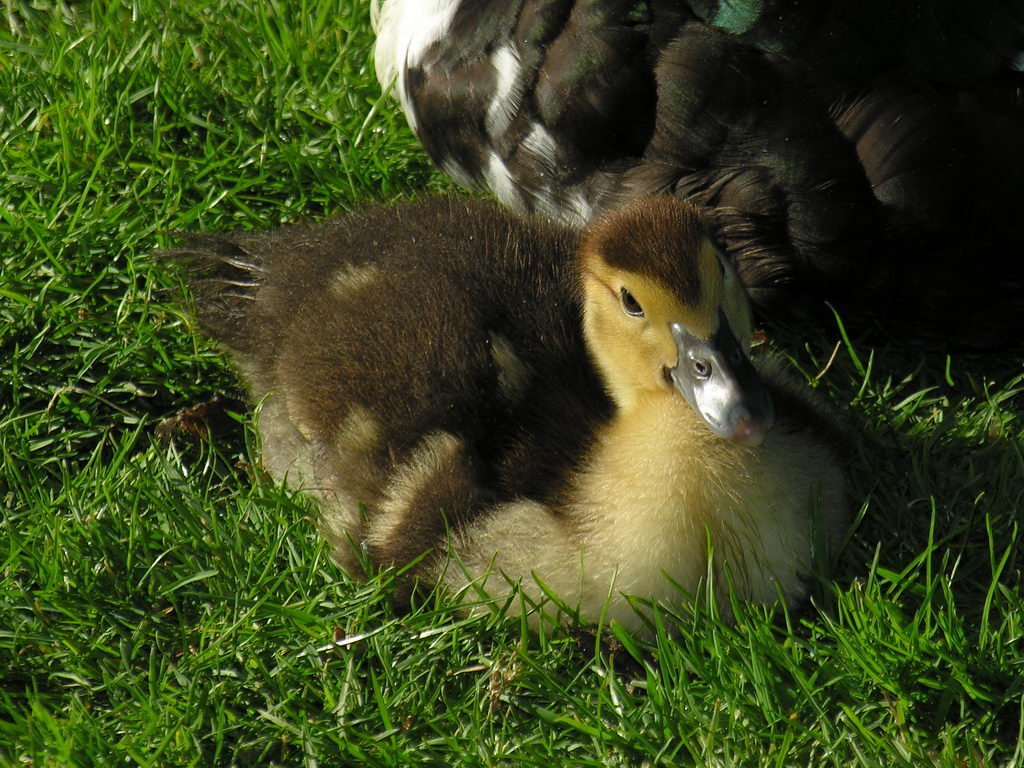 They appear when the duck reaches maturity around 5-6 months of age. The male Muscovy has a larger mass of them while the female only has a red mask around her eyes.
They appear when the duck reaches maturity around 5-6 months of age. The male Muscovy has a larger mass of them while the female only has a red mask around her eyes.
Note that in this post, you’ll see a lot of pictures of my Muscovy ducks without the red, warty caruncles, this is because they are still young, probably around 4 months of age.
Muscovy males are large. They can reach 15 lb while the females are smaller and can reach about 9 lb.
Muscovies have many different and beautiful colors. They can range from black to brown to grey or white or tan and one duck can have more than one color.
Do Muscovy Ducks Quack?
four months old Muscovy ducksNo! Muscovy ducks don’t quack. They do make a hissing noise mainly when they talk to each other but it’s not a loud noise. For the most part, they are very quiet ducks.
This might be a pro or it might be a con to owning Muscovy ducks depending on what you like. I generally prefer quiet! I owned Guinea fowl before and just about lost my mind with the amount of noise they made.
What do Muscovy Ducks Eat?
Muscovy ducks eat chicken feed, bugs, flies, mosquitoes, greens and kitchen scraps, bread and pasta, and fish.
If your Muscovy ducks are free-range, they don’t need you to feed them a whole lot even when they are very young. They will clean your yard of ticks and other nasty bugs.
You’ll see them eat some grass and other greens (yes! They will eat your garden if they can access it) as well.
But maybe the best thing about Muscovy ducks is that they love eating flies and mosquitoes! You’ll literally see the ducks catch the flies in the air as they fly by. When it comes to mosquitoes, they’ll either eat adults or they’ll eat them at the larva stage.
Let me tell you a story… I moved to my house in the country in 2016. The house was abandoned for 7 years. There was trash everywhere, standing puddles of water, and an overgrown lawn.
Right next to the house there is a pond. But it’s not really a pond, more like a swamp.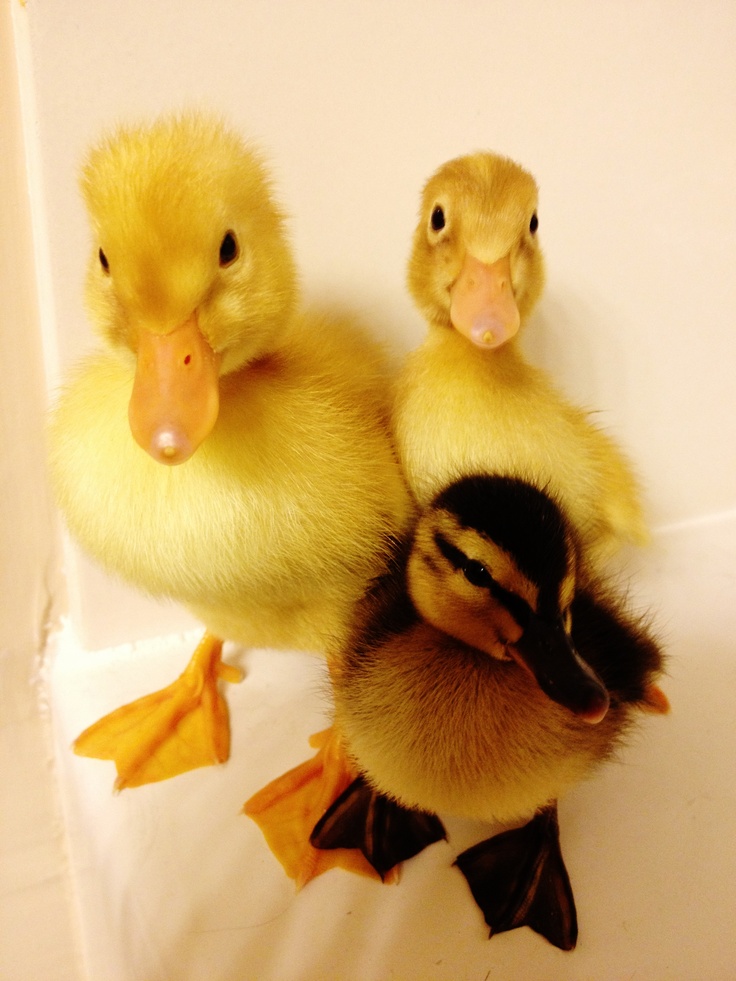 It’s shallow and fills and dries depending on the rain.
It’s shallow and fills and dries depending on the rain.
A perfect breeding ground for mosquitoes, ticks, chiggers and so on.
Even though we cleaned the place, it was still impossible to sit outside on the porch, the mosquitoes were just unbearable! This went on for a year. Then, we got our three Muscovies… Within 3 months, the place was cleaned up completely.
Since then, I have maybe 10% of the flies that I should have with all the livestock around me and not a single mosquito in sight! For me, this is a great reason for owning these amazing ducks!
four months old Muscovy drakeEven though they can forage and take care of themselves, I still feed my free-ranging ducks a couple of cups of chicken feed in the morning, just to get them used to me and to a routine.
If your Muscovy ducks live in a fence they will depend on you to feed them…
Ducklings – ducks grow very fast and so they need feed that is rich in protein. Non medicated chick starter feed with 20-22% protein is a good choice. Feed it free choice.
Non medicated chick starter feed with 20-22% protein is a good choice. Feed it free choice.
Young ducks and adults – I find that after the first three weeks Muscovy ducks can transition to adult feed with no problem. Feed 16% protein chicken layer feed either free choice or at least eight ounces per duck per day.
You can also feed your ducks corn, herbs, kitchen scraps, weeds, old bread, fish, old cheese, and so on.
Always make sure that your ducks have plenty of water! Muscovy ducks love washing themselves and they drink a whole lot. Like any other duck, they make a mess of the water so make sure to clean and change the water daily.
This is a great article on how to feed ducks if you want to dig even deeper.
Do Muscovy Ducks Need Shelter?
Muscovy ducks living around the pondMuscovy ducks only need shelter for their nests or if you live in a very cold climate. They don’t mind the rain, they don’t mind the cold, they don’t mind the snow, and they don’t need you to supply them with roosting bars because they prefer the ground.
They are very hardy ducks and easy to care for! My ducks do have shelter but I never see them use it. I’ll see them stand in the rain and enjoy it. Even when we get some snow, they still stay outside.
Now, I am in the South and it never gets below zero here. We also don’t have a whole lot of snow. Maybe if you live in Alaska it makes sense to make sure that they have a protected place to hang out in during the winter.
However, they do need a protected place for their nests. Something like a nest box or access to the floor of the chicken coop or maybe access to an old shed or some sort of outbuilding. My free-ranged ducks love making a nest in my dog’s house! You’ll learn more about their nests below.
Are Muscovy Ducks Friendly?
The only time that Muscovy ducks are not friendly is when they have their young with them. A mother Muscovy duck will try to make sure that no one gets closer to her ducklings. Other than that, they are VERY friendly ducks!
They will eat from your hand and follow you everywhere like dogs.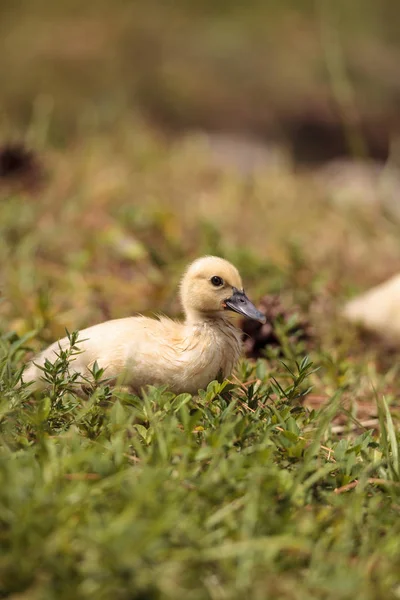 They are very slow (which makes them easy prey if they are free-rangers) and easy to catch.
They are very slow (which makes them easy prey if they are free-rangers) and easy to catch.
They generally get along very well with other animals! I raise my ducks around my dog and cat and they live with the chickens and goats.
They get along very well with the other animals. Usually, it’s the chickens that are mean to them and I need to keep an eye on and deal with a mean hen.
Between them, they get along very well. The only time that I had an issue was when I had too many drakes in one fence. They kept fighting with each other and with the roosters and I had to get rid of a few. This is normal behavior for most animals.
If your Muscovy ducks are fenced, make sure that you don’t have more than one drake for four hens.
When do Muscovy Ducks Start to Lay Eggs?
Muscovy ducks start mating and laying eggs around 7 months old. The female chooses a location for her nest and keeps coming back to the same nest. If you have a few females, each one of them will have her own nest.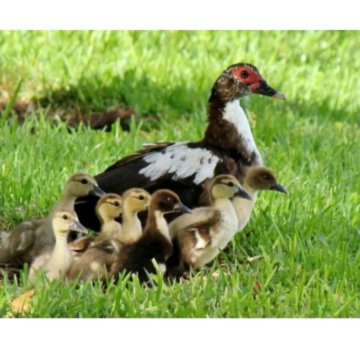
They mostly make their nests on the ground in a protected area. They might choose to make their nest under the goat’s milk stand, in an empty bin, or under the wooden pallet that holds the hay bales.
Muscovy hen sitting on a nest of eggsThey pluck some of their breast feathers and use straw to make their nest.
They lay one egg a day in that nest and if you leave the eggs in the nest, the hen will start sitting on the nest when it has 6 or more eggs. Most of my hens go broody when the nest is 12 to 17 eggs large.
It takes 35 days for Muscovy duck eggs to hatch. During those days the hen doesn’t always stay on the nest. She might leave the nest for a little while and go to eat or wash.
This might be a little strange if you are used to chickens. Broody hens will not leave the eggs and chicken eggs have to keep a certain constant temperature in order to hatch.
At first, when I saw my broody Muscovy hen get up and leave her nest I thought that the eggs were ruined.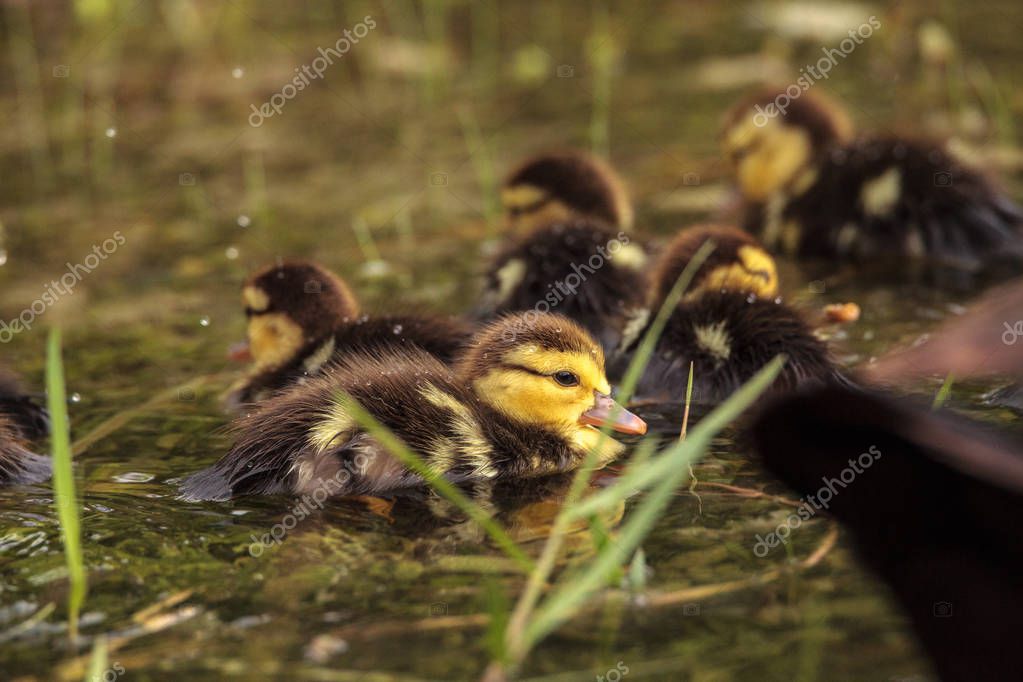 But trust the duck and don’t touch the eggs! She will be back and all will be fine. She knows very well what she is doing!
But trust the duck and don’t touch the eggs! She will be back and all will be fine. She knows very well what she is doing!
You can watch a video of my first Muscovy ducks hatching on YouTube HERE.
Muscovies do not lay eggs year-round. They start when the weather starts to get warm in the spring and stop when the weather cools down. Here in the South, their season is between March to October. Then they will take a break for the winter.
During their season, they can sit and hatch two to three nests. If each nest has 10-15 eggs in it you can imagine how fast the Muscovy population in your homestead can take off.
I manage that by collecting some of the eggs and butchering some of the ducks.
Are Muscovy Ducks Good Mothers?
three weeks old Muscovy ducks with mamaMuscovy ducks are the best mothers. They take very good care of their young and they are very protective of them. In fact, Muscovy mothers are pretty aggressive and won’t let anyone close to their babies!
Once all the eggs hatch the mother will spend two more days in the nest with the babies.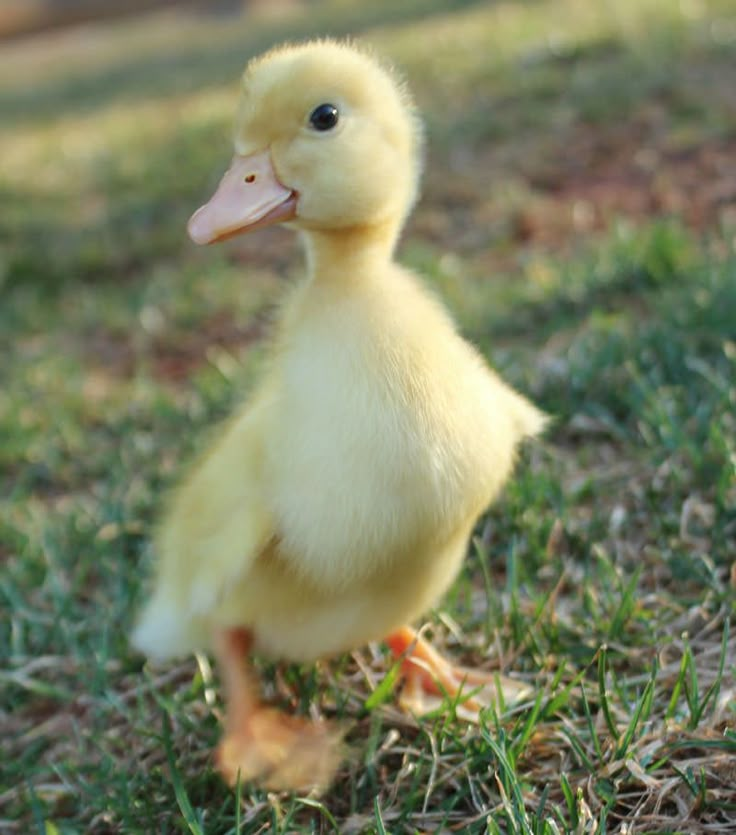 She will clean her babies and won’t leave them for a moment. She doesn’t show up for feeding those days and I don’t feed her or bring her water. I just let them be.
She will clean her babies and won’t leave them for a moment. She doesn’t show up for feeding those days and I don’t feed her or bring her water. I just let them be.
After a couple of days, they will leave the nest and just walk around. Sometimes they come back to the nest for the night and sometimes they find another spot.
The young ducklings will always stay behind their mother. If your ducks free-range they’ll walk around and hang out by a water source like a pond if one is available.
Take into consideration that the little ducklings are very easy prey. Many times I had mothers go into the woods with 10 ducklings and come back with 6.
You can choose to grab them after they hatch and move them to a brooder for a few weeks for their protection. Make sure to relocate the mother as well so she knows where her ducks are.
five day old Muscovy ducklingsI sometimes move them to a brooder that has an open top. This way the mother can fly in and out. She can go wash and eat and come back.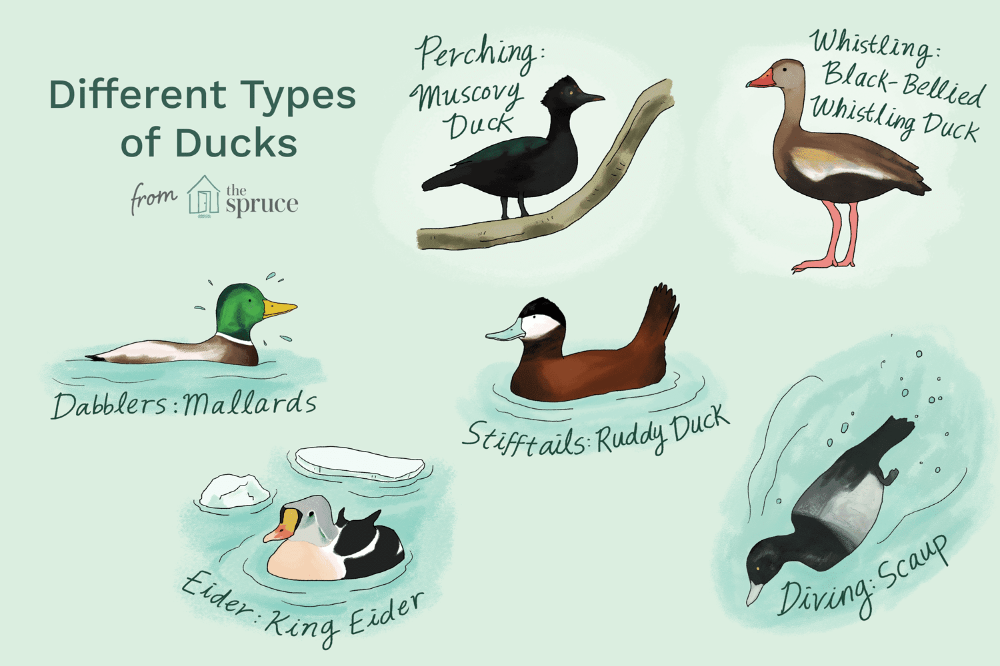
If your ducklings don’t free-range, you’ll have to make sure that they have water and feed. Make sure that the water dish is not deep. They will most likely play in the water and if it’s deep and there is no easy way for them to get out they will drown.
three weeks old Muscovy ducksDucklings grow very fast and somewhere between four to six weeks they no longer need their mother. She will take a little break and then she’ll start mating and laying eggs for the next nest.
How to Tell the Sex of Muscovy Ducks…
When Muscovy ducks reach maturity it’s easy to see which one is a hen and which is a drake. The drakes are considerably larger than the hens and they have a larger mass of red caruncles on their head.
When they are young ducklings, sexing is a bit more difficult. I look at their tail. The drakes will have a much fatter tail than the hens. Still, it’s not easy to sex them when they are young.
This video will show you how to sex day old ducklings.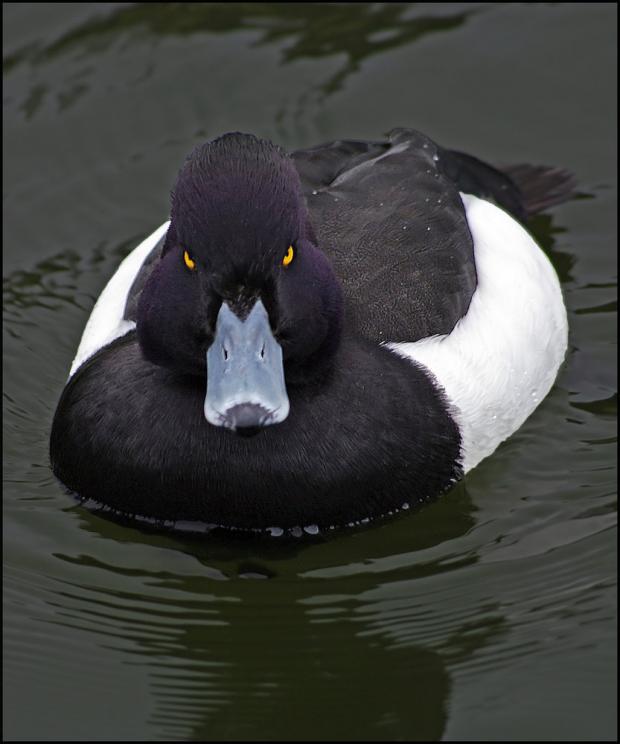 I’ve never tried it but this might be a reliable method.
I’ve never tried it but this might be a reliable method.
Do Muscovy Ducks Fly?
The drakes can fly but not very well since they are pretty heavy-bodied. I see my male ducks fly very low, just a few feet off the ground and not very far or often. The Muscovy hens fly very well.
The hens fly all over and around the homestead and often land on the roof of the house and just hang out there for a while, walking from here to there.
It’s very cute to see them up there on the roof but not always a great thing… I have a friend that is now dealing with a leaking roof because the ducks messed with the seal around the vents.
If you don’t want to have your ducks free-range and fly and prefer for them to be fenced and not fly around, you can clip one of their wings just as you would do with chickens. I show how to do this in my post about clipping chicken wings.
Will Muscovy Ducks Fly Away in the Winter?
Muscovy ducks don’t care much about the cold and even though they are a wild kind of duck, they are also very domesticated and love having a home. They don’t fly away in the winter.
They don’t fly away in the winter.
I have never had my ducks take off even though they were free. They love staying around the house. They come back every morning to eat the feed that I throw on the ground for them. They make their nests around the homestead even though they can go and find a hollow log or a bush nearby.
I do get emails and comments from people who walked out of their house one day and found a Muscovy duck by their pond (check the comment section of this post). So I guess that sometimes they do fly around but for the most part, if you provide them with a good home they will stay around the homestead.
Raising Muscovy Ducks For Egg Production…
Muscovy ducks are not an egg-laying machine. Not at all and I don’t recommend choosing them if egg production is your main goal. A hen might lay 80-120 eggs a year.
Don’t get me wrong, their eggs are amazing. They are the size of a very large chicken egg, the shell is creamy white and very strong, and the yolk takes most of the space in the egg.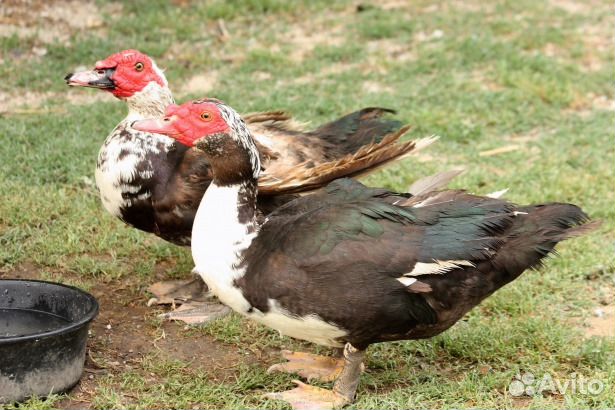 Their eggs are rich and very tasty.
Their eggs are rich and very tasty.
We eat their eggs just as we eat chicken eggs and I also use them for baking (they make the best baked goods! I use them in my pumpkin bread, sweet potato bread, apple cake, challah bread, or any other bread or cake that calls for eggs).
They just don’t lay a ton of eggs which is the reason that I won’t keep them mainly for egg production.
Raising Muscovy Ducks For Meat Production…
Muscovy ducks are a great source of meat especially for those of us who are looking to become more self-sufficient. They might take a little longer than other breeds of ducks to mature but they lay, hatch, and care for their own young.
Here is the thing… Meat breeds can’t reproduce. So, if you raise Cornish Cross chickens, for example, you butcher them at 8-9 weeks and you have to turn to the hatchery to purchase your next batch of meat chickens. You are depending on the store.
If you don’t want to do that and you decide to raise a heritage breed that moves around, behaves like a normal chicken, and can reproduce (I chose Black Australorps), you are probably looking at 6-8 months for those chickens to reach their full size.
Muscovy ducks are not engineered, they can reproduce very well (one hen can hatch 30 to 50 eggs in a season), they are great mothers (saving you all the work of raising babies), AND they reach butchering size in 3-4 months old. Half of the time that it takes a heritage chicken.
Add to that the fact that their meat is great… Mostly dark meat and very lean (98% fat-free) making it a very healthy kind of meat and you have a great duck for self-sustained meat production.
Also, you should know that Muscovy duck meat is Kosher. So if you are Jewish and follow a Kosher diet, these ducks are a great source of meat. If you’d like to learn more about why Muscovy ducks are Kosher, this is a great article.
Butchering these ducks is exactly the same as butchering chickens or butchering turkeys. Here is a step by step tutorial on how to butcher a duck.
Muscovy Ducks: Pros and Cons…
I know that this was a lot of information! Let’s make a quick list of pros and cons of owning Muscovy ducks so you can decide if they are for you…
Muscovy ducks pros –
- Friendly birds – they are friendly (apart from when they care for their babies) toward humans and other farm animals.
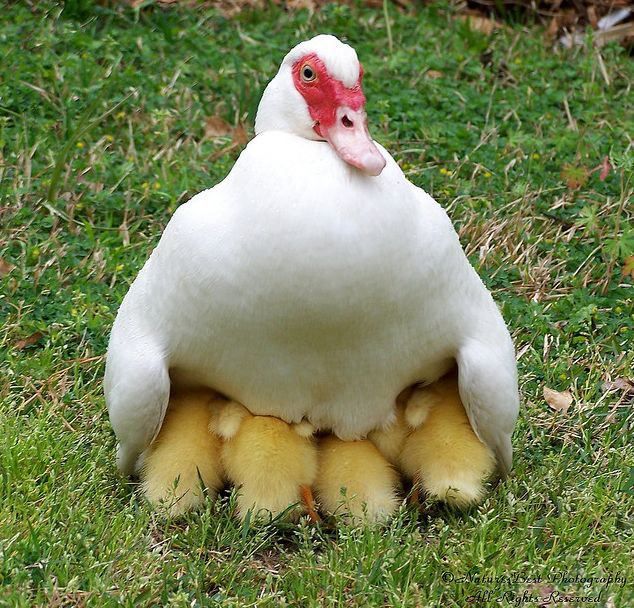
- They can help you control the fly and mosquito population – if you raise cows or other livestock you should consider adding a few Muscovies to the farm. They will reduce the fly population dramatically. Also, it might be a good idea to raise Muscovies in the bee yard if you keep bees. They’ll protect the hives from crawlers, wasps, and so on.
- They eat ticks and other parasites – they can help clean your yard.
- They don’t scratch or dig – as opposed to chickens, Muscovy ducks don’t scratch, dig, and make a mess.
- Great eggs – their eggs are the size of a large chicken egg. Large yolk, rich, and very tasty.
- Great meat – their meat is 98% fat-free, dark, and delicious. It is also Kosher.
- Great mothers – Muscovies will take care of their babies, saving you the need to hatch or purchase and raise ducklings.
- Quiet – they don’t quack.
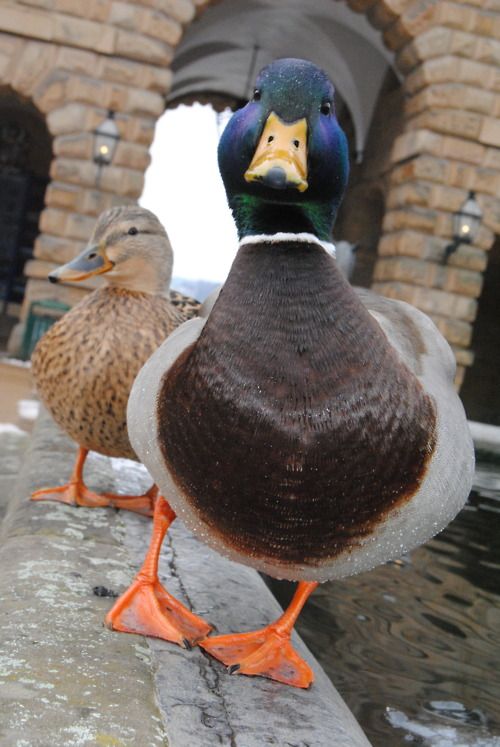 This may be a pro or a con for you.
This may be a pro or a con for you.
Muscovy ducks cons…
- Slow, easy prey – if your ducks free-range you might lose some to predators.
- Don’t lay many eggs – around 80-100 a year.
- They fly – this might not be an issue for you but take into consideration that they can land on roofs and poop and such.
- They poop a lot – oh well, this is true for any duck… They just poop a whole lot!
I hope that this post gave you enough information to decide whether you want to raise Muscovy ducks or not. They are a great breed of duck to add to any homestead in my opinion.
If you have any questions, please feel free to post them in the comments. If you are raising Muscovy ducks please share your experience with us in the comments below.
Lee
Hi! I’m Lady Lee. I help homesteaders simplify their homesteading journey while still producing a ton of food! I am a single mother of four, I was born in Israel and raised in an agricultural commune called a Kibbutz. Now I homestead in central NC.
Now I homestead in central NC.
feeding and care for the first 3 weeks (advice for beginners) + photo
Muscovy ducklings need careful care, especially in the first 3 weeks after birth. At this time, immunity and health of the organs of an adult bird are laid. Kids need attention, training, proper feeding and maintenance. Experts give recommendations with photos and videos for beginner poultry farmers on how to effectively organize the nutrition of ducklings.
Contents
- How to equip a ducklman for feeding
- Care for newborn ducklings
- How to feed ducklings from the second week of life
- How to feed menstruation ducklings
- than you can not feed muscle ducklings
- Features of muscular ducks
How to set up a feeding nest
Indo-ducks are omnivores, but eat less than other types of ducks. The bird loves spacious living conditions. If you have equipped a suitable duckling with comfortable nests, furnish it correctly and in terms of feeding comfort.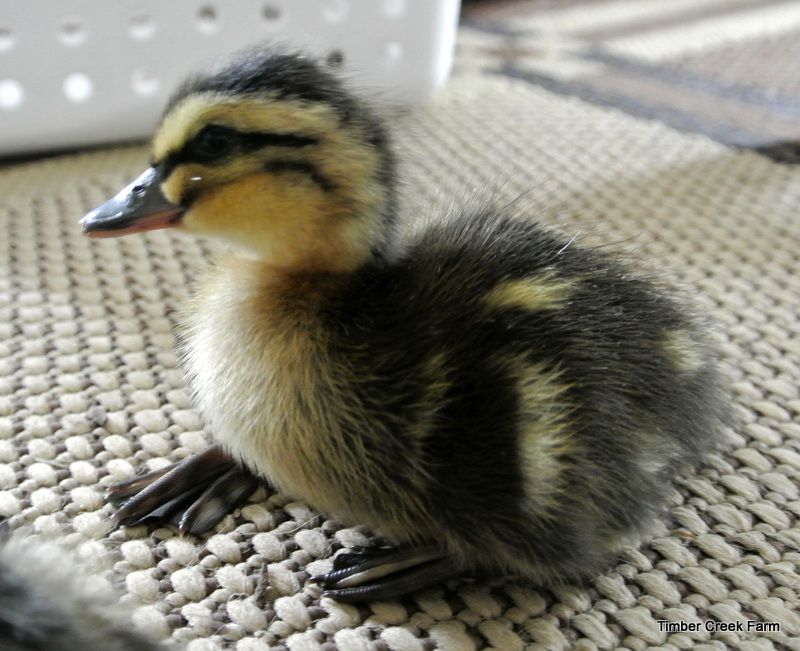 You will need:
You will need:
- Metal and wooden feeders. The former are best used for wet food, the latter for dry food.
- Drinkers. Indians drink a lot of water. It requires a lot for chicks and adults. The device of the drinker should allow the duckling's beak to be completely immersed in water.
Attention! One adult per day drinks about 1 liter of water.
Indians are able to eat any food waste. The question is their number. If you have a small farm, then the leftovers from the table of your family will be enough to feed the brood. Otherwise, other solutions will be required. Duck chicks are not immediately ready to join the common table of a feathered flock. Therefore, attentive poultry farmers are required to prepare and smoothly introduce an adult diet for ducklings.
Organize a shelter for the ducklingsCaring for newborn ducklings
Experts recommend starting weaning musky ducklings as soon as they are dry.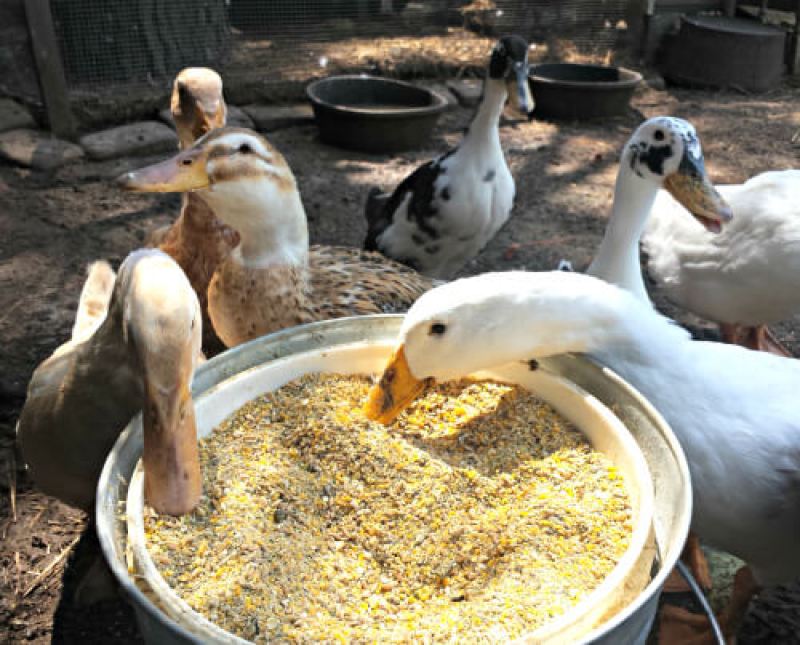 The sooner the better. This is important because not all chicks have the innate swallowing reflex that is needed for food. Such yellow mouths should first be drunk from a pipette with a slightly pink solution of potassium permanganate.
The sooner the better. This is important because not all chicks have the innate swallowing reflex that is needed for food. Such yellow mouths should first be drunk from a pipette with a slightly pink solution of potassium permanganate.
Tip. Newborn ducklings do not yet know about the feeder and the food in it. To accustom them to a meal, use chopped boiled eggs. Pour the food on the backs of the babies. Falling, egg crumbs will attract the attention of the chicks faster than food in the feeder.
From the second day of life, corn or barley flour is added to the eggs. From 2-3 days you can add fresh fat-free cottage cheese to the diet. On the third day, treat the chicks with a liquid mash:
- take whey or curdled milk as a dressing;
- add compound feed - the basis of the dish;
- scald and finely chop nettle leaves;
- stir.
Attention! Compound feed contains the optimal balance of mineral salts, organic compounds, nutrients and vitamins.
This is the perfect food for baby ducklings. Liquid base enhances absorption.
How to feed ducklings from the second week of life
When the chicks have grown a little, the stirrers are seasoned with fish or meat broth with a low fat content. The main ingredient in them is meat waste twisted in a meat grinder. Low-fat sour-milk liquid should also remain in the diet of musky ducklings in large quantities. You can add to the mixers:
- pumpkin;
- cabbages;
- marrows;
- as well as potatoes and other root crops.
Attention! Use only clean water for mixing.
Many owners refuse to use compound feed because of its price, which increases the cost of the final product: duck meat or eggs. A homemade product is cheaper. There are many recipes for homemade feed. They take into account the climatic features of the region, breed, etc.
From the second week, vegetables can be introduced into the diet of ducklings. This food is valuable in useful substances, vitamins and mineral salts. If the chicks hatched in the summer, there should be no problems with fresh greenery. Follow these nutritional guidelines for the first three weeks of feeding your ducks.
This food is valuable in useful substances, vitamins and mineral salts. If the chicks hatched in the summer, there should be no problems with fresh greenery. Follow these nutritional guidelines for the first three weeks of feeding your ducks. How to feed monthly Indochian ducklings
Approximately from the 20th day of life, ducklings are transferred to adult nutrition. Its basis is the greens eaten on pastures. Also, the bird can already be released into high water - there is a lot of duckweed in ponds and lakes, which ducks love very much. For 1/5 share, the diet can be diluted with mashed boiled potatoes. Do not limit the young bird in food, replenish the feeders regularly. Indians have a tendency to obesity, but at an early age this should not be feared.
Monthly age - the time to start feeding ducklings with whole sprouted grains. Give it as a dessert 1-2 hours before dark.
What not to feed Muscovy ducks
The main condition for a healthy diet is freshness.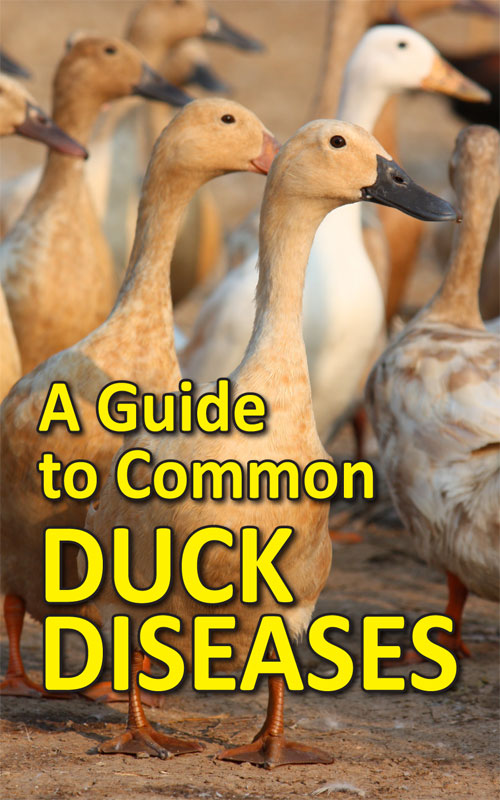 It explains the restrictions in diet and feeding methods:
It explains the restrictions in diet and feeding methods:
- Soured foods, especially those of animal origin, cause digestive disorders in birds. And they, in turn, become catalysts for the development of many diseases.
- Large pieces - deadly to adult and young ducks. The bird can easily choke.
- Indo-ducklings must not be fed fresh baked goods. They contain yeast, which enhance the fermentation processes in the stomach of the chicks. Livestock is threatened with diarrhea and developmental delay, individual birds - death.
Peculiarities of the further feeding of Muscovy ducks
After 2 months the ducklings grow up and get stronger. Their diet does not differ at all from the nutrition of the rest of the brood: beet tops, chopped greens, waste. Corn and sprouted grains are a delicacy for chicks. Water greens and insects can greatly reduce your feeding worries. If there is a suitable body of water nearby, just release the bird there more often.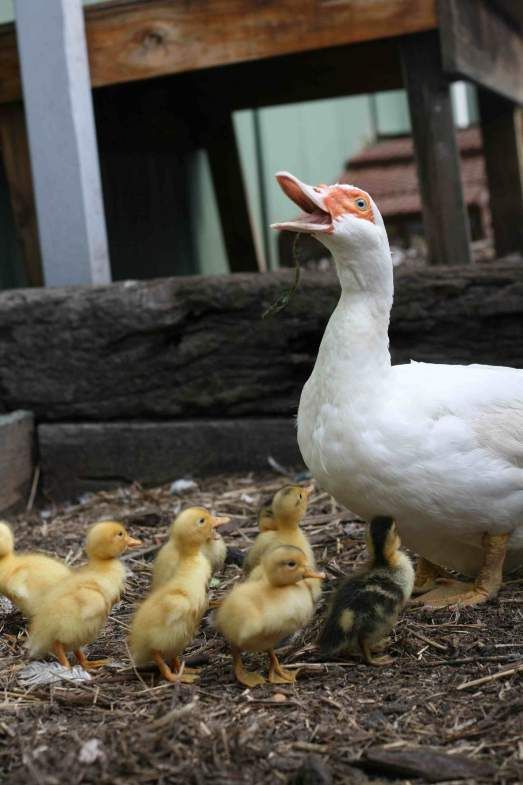 You can even dig a pond yourself.
You can even dig a pond yourself.
Before releasing the Indo-Duck to pasture or water, consider the following points:
Muscovy Indo-Duck Ducklings- Muscovy ducks are often attracted to shiny splinters, nails, or metal objects. The bird swallows dangerous objects.
- Even in cold weather, do not give very warm food or water.
- Avoid eating different types of duck together. Individuals will begin to fight for food.
- Keep Muscovy Duck out of the water in winter. The natural protection of feathers from icing is worse than that of others. The bird may simply die.
Despite the omnivorous nature of the Muscovy duck, its diet must be balanced and contain all the necessary substances. The bird needs a plentiful drinking regimen. A well-chosen diet will allow your brood of ducklings to turn into strong and healthy birds.
How to feed Indo-ducks: video
The basics of feeding Indo-ducks and the consequences of improper diet
Muscovy ducks (or Indo-ducks) come from South America.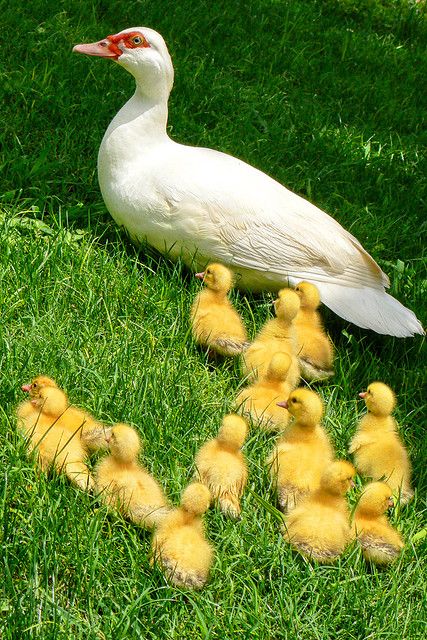 They were domesticated by the Aztecs. Came to the Soviet Union at 1981 year. The Indian is popular in rural farmsteads to this day. For the inability to quack, ducks were called "mute".
They were domesticated by the Aztecs. Came to the Soviet Union at 1981 year. The Indian is popular in rural farmsteads to this day. For the inability to quack, ducks were called "mute".
Properly organized feeding is the key to the health of the poultry population. Omnivorous Indo-ducks require a varied, balanced diet.
Contents:Show
- Food for indows
- Vitamin and mineral supplements
- Feeding in summer
- Feeding in winter
- Improper feeding and its consequences
- Diet and feeding norms
- What kind of grass can be fed to indochka?
- Shipun feeding in the context of age groups
- Ducklings
- Western
- Poultry for fattening
- Parental herd
- Refusal
9000 9000
Coma, used under growing indomperi. grain of corn, wheat, barley, oats and grain waste;

Most ingredients are fed to as wet mash.
Vitamin and mineral supplements
For effective growth and development of Muscovy ducks, improvement of egg production and hatchability, the diet must contain all the necessary micro and macro elements, as well as vitamins. The industry produces ready-made vitamin-mineral mixtures (general and special for musky ducks), premixes, as well as compound feed balanced in composition.
In addition to ready mixes , you can use:
- ground shell rock;
- crushed egg shells;
- chalk;
- ash.
These ingredients are usually poured into a bowl and placed in the house. Premixes are added to the general feed in the dosages indicated on the package.
Salt is added to food to provide the body with sodium. But this must be done with caution, as excess salt can lead to food poisoning of the bird.
Posted by kylie e. (@muscovy.ducks)
Feeding in the summer
In summer, up to 50% of feed can be replaced by meadow grass. Indo-women should be provided with a range where they can eat greens without hindrance. The tops of beets, carrots, green onions, cucumbers, zucchini, and cabbage are also fed. If there is a reservoir on the territory of the farm, then musky ducks will swim and eat insects that have come across, and find worms in moist soil.
In addition to green fodder, ducks are fed wet grain mixtures in summer. Mixers give twice a day.
Feeding in winter
During the period when mute mutees do not have access to fresh herbs, feed them three times a day. Experts advise alternating wet mash with dry grain mixtures.
In addition to premixes, grated vegetables will help to enrich the winter diet with vitamins.
Suitable for feeding: carrots, beets, cabbage, onions, hay cuttings, silage. All this is included in the composition of the mash, along with grain and protein supplements (meal, cake, meat and bone and fish meal).
It is important to remember that, despite the cold season, do not give ducks hot food and water. Feed ingredients must be fresh and of good quality. You need constant access to clean water.
Posted by Mona (@elverdans)
Incorrect feeding and its consequences
Insufficient or unbalanced nutrition leads to a diseased state of the bird. There are beriberi, food poisoning, cloacitis, goiter catarrh.
Signs of beriberi:
- Poor appetite.
- Slow growth.
- Eye inflammation.
- Unsteady gait.
- Tousled.
For to eliminate signs of beriberi , more greens and carrots are added to the feed. You can include fish oil, yeast, sprouted grains in the diet.
You can include fish oil, yeast, sprouted grains in the diet.
Rickets can be a symptom of a mineral deficiency. Mandatory presence in the diet of shells, chalk, industrial mineral supplements.
Food poisoning occurs when feeding expired feed, with the presence of toxic substances, pesticides.
Signs of food poisoning:
- Vomiting.
- Diarrhea.
- Convulsions.
- Death.
In order to avoid the consequences of poisoning, care should be taken to ensure that poor-quality feed does not get on the indoutok feed table.
Cloacite is a consequence of a lack of vitamins and minerals. The disease is manifested by inflammation of the mucous membrane of the cloaca. When symptoms appear, the diet is balanced for vitamins and minerals, local treatment of diseased individuals is carried out.
Catarrh or inflammation of the goiter is also associated with poor quality feed.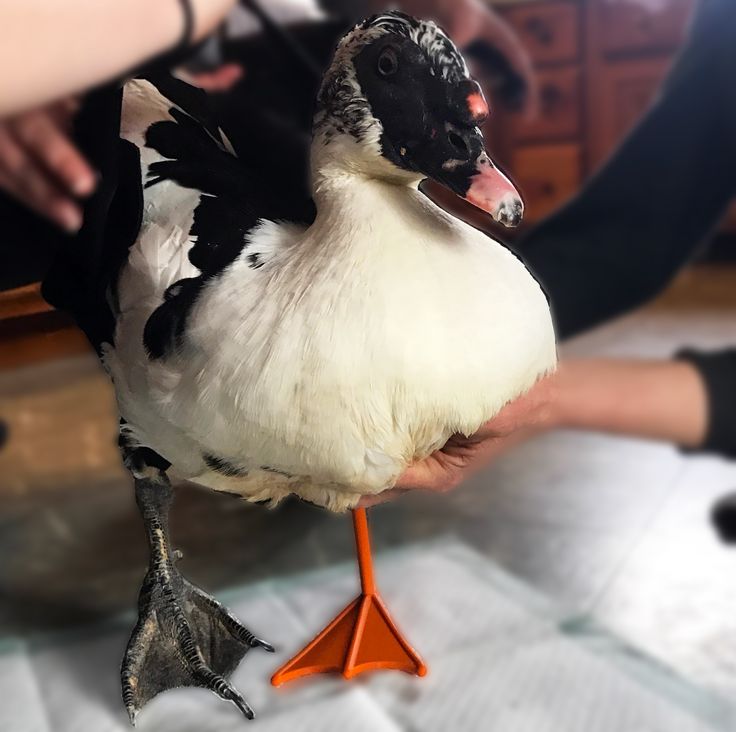 The disease resolves with the normalization of feeding.
The disease resolves with the normalization of feeding.
With a lack of sulfur in the diet, the bird begins to peck eggs.
All of the above problems are solved by switching to quality balanced feeding.
Posted by Sandra Le Feuvre (@benwerrin_bamboo_nursery)
Diet and feeding norms
Muscovy duck diet should be varied, including the maximum amount of ingredients mentioned earlier. At least 350 g of food should be consumed per adult individual per day .
The balance in the vitamin-mineral composition of the diet is achieved by the introduction of premixes. The manufacturer indicates the rate of administration according to the age of the bird in the annotation to the preparation.
Poultry breeders advise against introducing sunflower seeds into the diet of Muscovy ducks.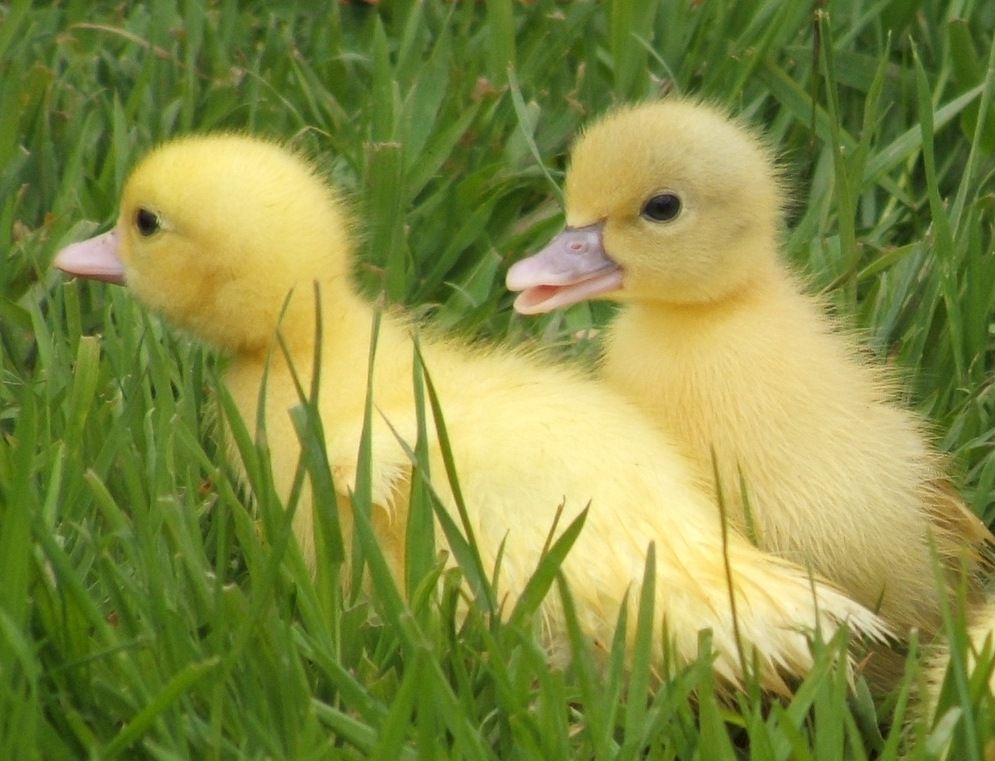 A high percentage (up to 55%) of fat will lead to obesity in the bird. The result is
A high percentage (up to 55%) of fat will lead to obesity in the bird. The result is
Muscovy ducks eat grass, both pastured and freshly cut. Nettle, dandelion, alfalfa, quinoa, knotweed (highlander), clover, amaranth are present in their diet.
Sometimes poultry farmers advise to sow pasture with a lawn grass mixture, then they will include bluegrass, fescue, ryegrass.
Ducks eat duckweed from aquatic plants.
Muteer feeding by age groups
Ducklings
From birth, an Indian duckling cannot eat by itself and instinctively pecks only at moving food. In the first days of life, they are fed with a grated egg, sprinkling it on the backs of the chicks. Giving the egg to the hatched duckling should be frequent and in small portions.
Chicks aged 1-7 days are watered with a weak solution of manganese. Ducklings are also taught to drink by dipping their beaks in water.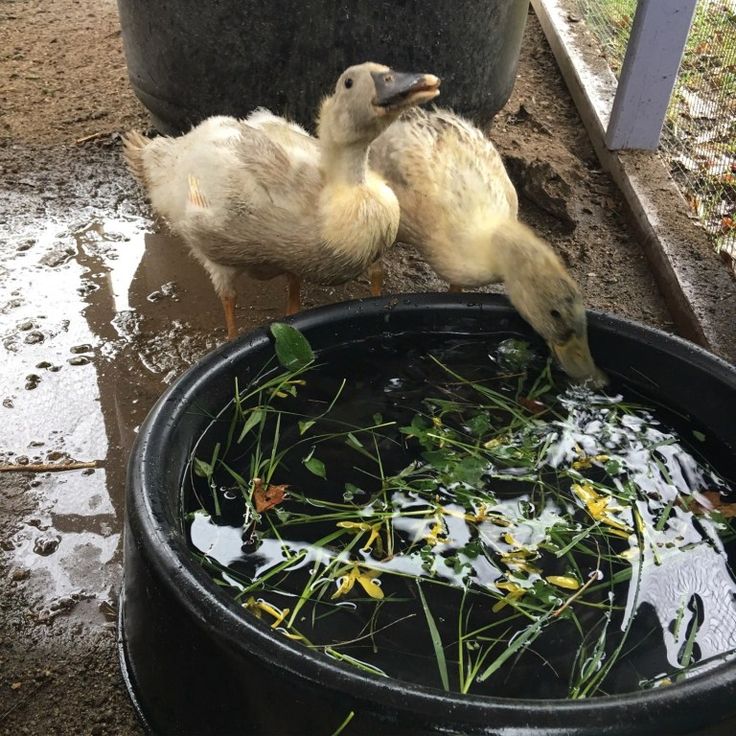
On the second day of life, corn grits are added to the egg (you can use oatmeal).
From the age of three days, fat-free cottage cheese and finely chopped greens are given. You can enter green onions, nettles, spinach.
On the fourth day, the egg is removed and minced meat waste is produced.
The diet of ducklings at the age of 4-20 days is identical to feeding in the first days of life. Enter vitamin and mineral supplements. All components are fed in the form of wet mash.
From the age of three weeks, ducklings are transferred to a common fodder table with adult animals.
Laying hens
Three weeks before the planned laying of ducks, the diet is adjusted. Include more protein foods, calcium and vitamin D components, reduce the amount of vegetables and herbs fed. Access to water should be calculated - 1 liter per layer. Switch to four meals a day. Such principles of feeding are observed throughout the entire laying period.